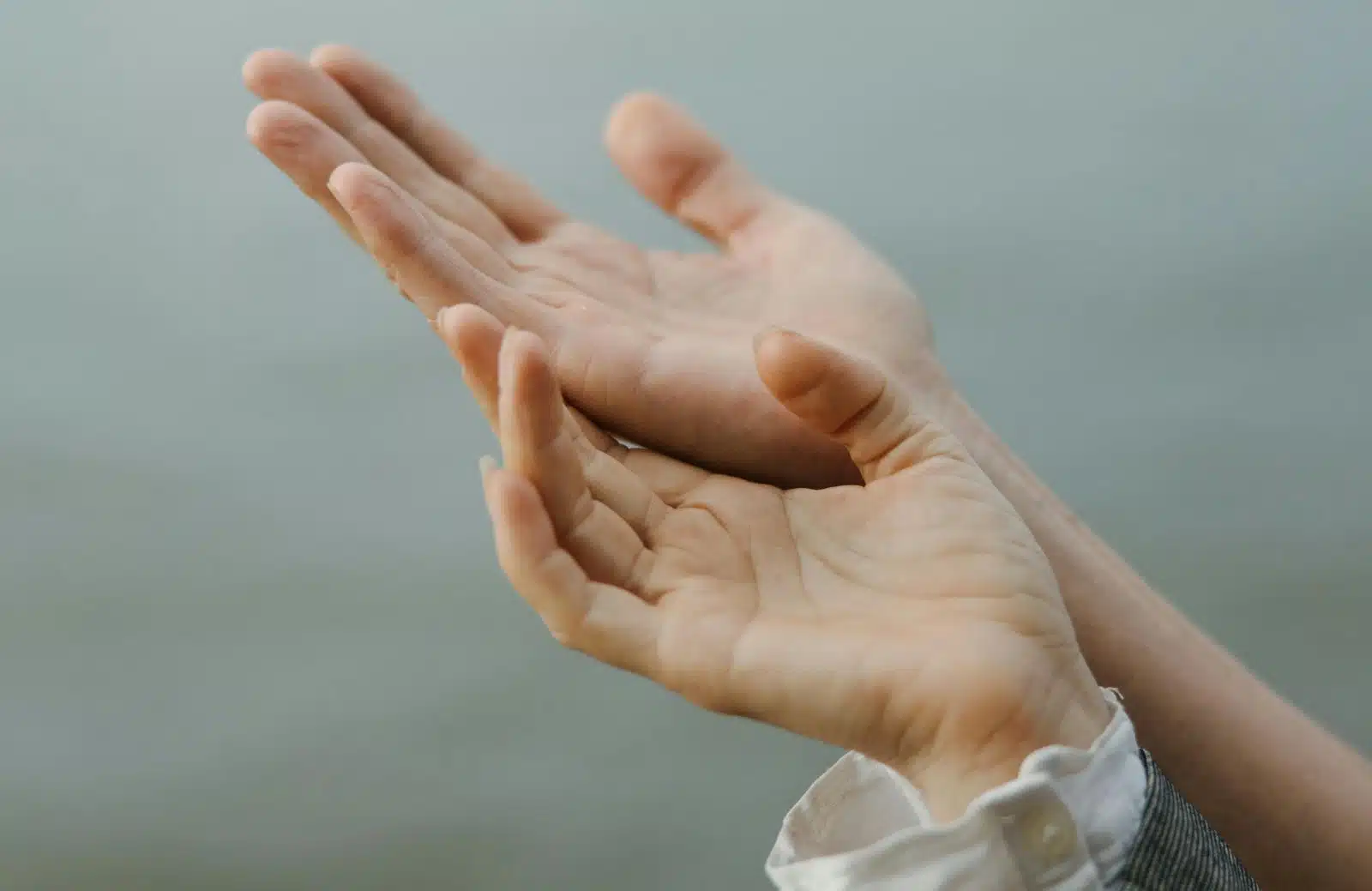Traveling abroad can be tricky for Americans who might unknowingly disrespect local customs and norms. Want to avoid these travel faux pas? Here are some common ways tourists accidentally offend locals, with examples of where these behaviors are especially frowned upon.
1. Wearing Shoes Inside Homes – Japan and Korea

Image Credit: Shutterstock / Konstantin Aksenov
In Japan and Korea, wearing shoes inside someone’s home is considered highly disrespectful. It’s customary to remove shoes at the door and wear slippers provided by the host.
2. Touching Someone’s Head – Thailand

Image Credit: Shutterstock / PR Image Factory
In Thailand, the head is considered the most sacred part of the body. Touching someone’s head, even a child’s, is seen as invasive and disrespectful.
3. Leaving Chopsticks Upright in Rice – Japan

Image Credit: Pexels / Antoni Shkraba
This is a major faux pas in Japan, as it resembles a ritual offering for the dead. Always place your chopsticks on a rest or the side of your bowl when not in use.
4. Gesturing with an Open Palm – Greece

Image Credit: Pexels / Anastasia Shuraeva
In Greece, gesturing to someone with an open palm (the “moutza”) is highly offensive. This gesture has roots in historical insult and should be avoided.
5. Discussing the Royal Family – Thailand

Image Credit: Shutterstock / Antonio Guillem
In Thailand, it’s illegal and highly disrespectful to criticize the royal family. This can lead to severe penalties and is a cultural boundary that should never be crossed.
6. Refusing a Drink – Russia

Image Credit: Shutterstock / Cat Box
In Russia, it is customary to accept when offered a drink, especially vodka, as a sign of trust and camaraderie. Refusing can be seen as rejecting friendship.
7. Using Left Hand for Eating – Middle East, India, and parts of Africa

Image Credit: Pexels / Andrea Piacquadio
In many parts of the world, including the Middle East and India, the left hand is considered unclean because it is used for hygiene purposes. Always use your right hand to eat, greet, and give or receive items.
8. Ignoring Queue Etiquette – United Kingdom

Image Credit: Shutterstock / TK Kurikawa
Queue-jumping is extremely rude in the UK. Patience and respect for the queue are intrinsic to British culture.
9. Being Overly Casual – United Arab Emirates

Image Credit: Pexels / Jeff Denlea
Dressing too casually, especially in religious or traditional settings, is frowned upon in the UAE. It’s important to dress modestly out of respect for local norms.
10. Showing the Soles of Your Shoes – Arab Countries

Image Credit: Pexels / Vlad Chețan
In many Arab countries, showing the soles of your shoes can be seen as a sign that you regard others as beneath you. Avoid putting your feet up on furniture.
11. Tipping Inappropriately – Japan and South Korea

Image Credit: Shutterstock / nutcd32
In Japan and South Korea, tipping is not customary and can be considered rude. Good service is expected as standard and does not require extra reward.
12. Public Displays of Affection – India and Middle Eastern Countries

Image Credit: Pexels / Vanessa Garcia
In many conservative countries like India and those in the Middle East, public displays of affection are considered inappropriate and can even attract legal action.
13. Not Removing Your Hat – Orthodox Churches, Eastern Europe

Image Credit: Pexels / Žaneta Mišutová
When entering an Orthodox church, such as in Russia or Greece, men are expected to remove their hats as a sign of respect.
14. Loud Conversations – Japan and Scandinavia

Image Credit: Shutterstock / Mix Tape
Loud talking and other boisterous behaviors are considered rude in countries like Japan and in Scandinavian cultures, where quiet and order are highly valued.
15. Calling the United States “America” – South America

Image Credit: Shutterstock / D’Action Images
Referring to the United States as “America” can offend people from South American countries, who consider themselves Americans too. Use “United States” or “the U.S.” instead.
16. Offering Handshakes to Women – Muslim Countries

Image Credit: Pexels / Pixabay
In many Muslim countries, men offering handshakes to women can be seen as inappropriate unless the woman extends her hand first.
17. Eating Everything on Your Plate – China

Image Credit: Shutterstock / Drazen Zigic
In China, completely finishing your meal can sometimes be interpreted as the host not providing enough food. Leave a little to show your meal was more than sufficient.
18. Not Adhering to Local Dress Codes – Vatican City and Middle East

Image Credit: Pexels / Andrea Piacquadio
Not adhering to dress codes in places like Vatican City and countries in the Middle East, where modest dress is required, can be seen as disrespectful.
19. Failing to Greet Properly – France

Image Credit: Shutterstock / Josep Suria
In France, failing to say “Bonjour” upon entering a small shop or other establishment can be taken as rude. Always greet with a polite acknowledgment.
20. Taking Photos Without Permission – Indigenous Communities

Image Credit: Pexels / Hamann La
In places with indigenous communities, such as parts of Australia or the Americas, always ask permission before taking photographs. It’s respectful and often required by local laws.
21. Over-Bargaining – Southeast Asia

Image Credit: Shutterstock / elwynn
While bargaining is common in markets throughout Southeast Asia, driving a hard bargain to an unreasonable extent is considered poor form and disrespectful to vendors.
Travel Respectfully

Image Credit: Shutterstock / PeopleImages.com – Yuri A
Navigating cultural norms can be tricky, but by being mindful of these specific behaviors, American travelers can show respect for the local customs and people they encounter during their journeys abroad. This not only enriches your travel experience but also builds goodwill and mutual respect.
More From The Green Voyage
Top 10 Trending Travel Destinations 2024
6 Essential Banking Apps for International Travel – Managing Your Finances on the Go
Traveling With Kids – 10 Tips to Create Memorable Family Holidays
The post How American Tourists Disrespect Local Cultures first appeared on The Green Voyage.
Featured Image Credit: Shutterstock / MAYA LAB.
For transparency, this content was partly developed with AI assistance and carefully curated by an experienced editor to be informative and ensure accuracy.
Tips for Trip Success
Book Your Flight
Find an inexpensive flight by using Kayak, a favorite of ours because it regularly returns less expensive flight options from a variety of airlines.
Book Your Hotel or Special Accommodation
We are big fans of Booking.com. We like their review system and photos. If we want to see more reviews and additional booking options, we go to Expedia.
You Need Travel Insurance!
Good travel insurance means having total peace of mind. Travel insurance protects you when your medical insurance often will not and better than what you get from your credit card. It will provide comprehensive coverage should you need medical treatment or return to the United States, compensation for trip interruption, baggage loss, and other situations.Find the Perfect Insurance Plan for Your Trip
